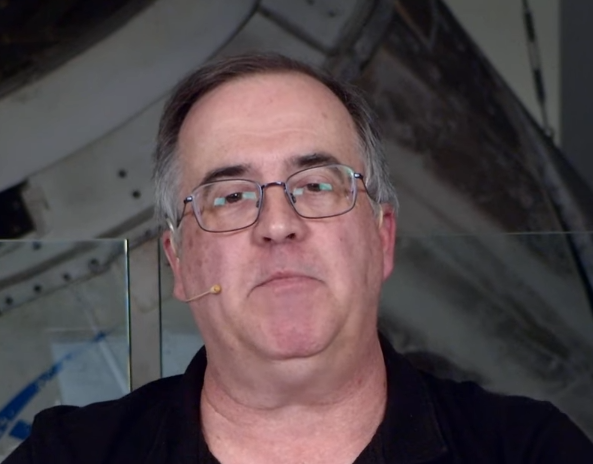It is rather incredible how dominant Falcon 9 is in the current launch market.
reminder that spaceX has an entire team dedicated to stopping musk meddling in the real work
Wait really? I wanna a link for that
Oh my God, I didn’t realize how much I needed that. The cutting of the tip of the penis cake, was the cherry on top.
hope it brightened your day!
I have no way of verifying numberonecatwinner’s story, but it is funny enough that I hope at least some parts of it are true. Thanks for sharing.
My only hope is that Musk’s bullshit doesn’t drag SpaceX down. Shotwell has that company running well.
It should be nationalised. SpaceX is providing critical infrastructure for the US/NATO. Having it run by a private, for-profit entity is a security risk. Musk has already proven this by cutting off Starlink access for Ukrainian offensive operations.
Musk did a lot worse than that. When he used Starlink to interfere with the operation of the drones directly he committed an act of war. That act is a weaponization of a space-based array to attack a military asset if done by a government would be met with immediate retaliation, but a private citizen somehow amasses the ability to be the most intolerable 60’s Bond villain of all time and what, we are all supposed to be hunky-dory with it?
Oh my goodness no. Private spaceflight is the future because it’s not nationalized. Can you imagine Congress cutting off SpaceX simply because they don’t see its use? I’m a big fan of NASA, but they would’ve been on Mars by now had they not been run by the government.
I wonder how it would actually play out. They would probably extend Falcon 9 and Dragon production indefinitely and descope Starship to the minimum needed for HLS? Then I would invest all my hope and prayers into Stoke pulling off full reuse?
An alternate meaning for the red, white and blue could have been US territories on Mars, the Moon, and Earth.
I don’t disagree with this but doubt it’ll ever happen.
You mean “ever return to nationalized”? Since space flight was entirely nationalized until what, a decade ago, decade and a half?
That’s a really disingenuous way to put it. No private company or conglomerate could bring the economic scientific and manufacturing abilities the US could; fuck, very few countries to this date can. And even then it was still a public private partnership, the same defense companies and ICBM manufacturers built the rockets we rode to the moon.
Strange take but shrug, whatever.
I think this is more disingenuous if anything. The US has always relied on contracts with private industry to do much of anything. So to say the US should nationalize something is to say a public private partnership should be made. Even if you completely nationalize SpaceX their suppliers would still be needed and it would still be a partnership.
Might I also add that you saying “we rode to the moon” while also advocating for private ownership is particularly ironic.
hey if today were 1969 we’d be groovy baby,
but time fucking change eh?
It’s not the days of North American Aviation or Douglas anymore lol - they don’t exist. Technology changes.
Supposing the only way things could possibly be done in 1950-1970 should be the only way we do them in the future is pretty dim.
So enjoy your irony, it’s glad you’re finding joy in the world even with such limited faculties.
Ok, now what % of that was Starlink satellites?
Great question! It sent me into a Google frenzy and here is what I found.
Q3 to me means three month period from 1st July to 30th September. During this time, there were 20 Starlink ‘V2 mini’ and 2 ‘V1.5’ launches. Each ‘V2 mini’ mission contained 21-23 satellites, which I averaged to 22, and ~50 in each ‘V1.5’ mission. Further, each ‘V1.5’ satellite weighs in at 306kg and each ‘V2 mini’ weighs in at 800kg.
Phew! With all that out of the way, putting all that together ((20×800×22)+(2×306×50)), we arrive at a figure of 382,600kg. Uncannily, this is almost exactly the same as the figure reported in the graphic,
and of course there were a lot more Falcon 9 launches in the intervening period, leading me to believe the reported tonnage figure excludes Starlink satellites. See edit below.This is all napkin maths done in the middle of the night, please feel free to (gently!) correct me if needed.
Inevitable correction: Q3 (as defined above) saw only one non-Starlink related Falcon 9 launch (source), therefore ~99.6% of reported tonnage was Starlink related!
I see 5 non-Starlink launches, only 1 of which is a Falcon Heavy.
-
7/1 Euclid (2160 kg)
-
7/29 Jupiter-3 (9200 kg)
-
8/3 Galaxy 37 (5063 kg)
-
8/26 Crew 7 (13000 kg)
-
9/2 SDA Tranche 0B (mass not listed)
Via https://en.m.wikipedia.org/wiki/List_of_Falcon_9_and_Falcon_Heavy_launches
So, that’s more like 9-10% of their Q3 total, and still more than CASC or Roscosmos.
Fantastic! Thanks for putting in the legwork with the correction.
-
SpaceX became dominant in the launch market the same wat Amazon became dominant in the delivery market.
By using massive investor capital to undercut the competition by operating under cost.
It’s not really amazing at all, it’s perfectly predictably. The other parties need to turn a profit, SpaceX/Starlink doesn’t, so they’re cheaper.
Step one of enshittification.
This strategy can also be called “investing”.
If their internal Falcon 9 launch cost is $20 something million, they do pretty well on a lot of commercial launches. They’re also starting to get cash flow positive on Starlink.
The problem with “investing” is that the investors eventually want as much return as they can get.
It would be foolish to assume venture capitalists will not try to exploit a market monopoly.
Oh, I meant the company investing upfront in capabilities, not individual investors. My understanding is that SpaceX mainly sells non-voting shares, so they should be less susceptible to normal investor BS.
As far as using/abusing their position goes, I think there’s some evidence of regulatory capture. Requirements are appearing for automated flight termination systems, low satellite reflectivity, and satellite deorbit. Those are all good, but SpaceX exacerbated the issues, and now these rules add cost and complexity for their competitors.
It’s actually still quite amazing that this model works with literal fucking space travel.
Probably shouldn’t be commenting on a 3-month-old post on a memes forum, but this seems highly inaccurate to me. Do you have a source for it?
It’s pretty simple.
1 - SpaceX baaaarely made a profit in q1 2023, if they did better in q2, we don’t know (yet).
2 - SpaceX main customer is Starlink, making up 62 of the 96 launches.
3 - launching a falcon 9 costs 67m (if you’re a third party, but I’m assuming for the sake of this post this is a healthy pricepoint).
4 - Starlink has a 2.6m subscribers, which (if they have expensive subscriptions), can pay for 23 launches per year assuming zero other costs.
So, at the absolute minimum, Starlink bought 39 launches, totalling 2.6 billion, using investor capital. So at the very least, that’s 2.6 billion dollars SpaceX burned and would have had to get elsewhere.
Note that those are minimum numbers. The real numbers are probably an order of magnitude higher, since Starlink also has to pay for terrestrial bandwidth for 2.6m people. It’s far more likely every single one of those 62 Starlink launches is venture capital. And despite selling 62 launches to that way, SpaceX barely made a profit.
In other words, without this free cash, they would need to massive up their prices, probably somewhere to the level of Rocketlab, which does need make money.




